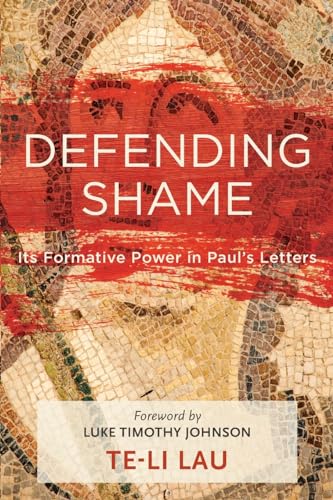The Sum and Substance of the Gospel: The Christ Centered-Piety of Charles Haddon Spurgeon
Written by Nathan A. Finn and Aaron Lumpkin, eds Reviewed By Geoffrey ChangCharles Haddon Spurgeon (1834–1892) was one of the most influential figures in the nineteenth century. He exemplified the activism of evangelicalism, publishing millions of sermons, pastoring the largest church of his day, founding a college for pastors and an orphanage, and much more. Many books and dissertations have been written on Spurgeon’s life, theological contribution, and far-reaching ministry. However, relatively little attention has been given to the inner life that motivated Spurgeon’s ministry. Nathan Finn and Aaron Lumpkin have sought to fill this gap in The Sum and Substance of the Gospel: The Christ-Centered Piety of Charles Haddon Spurgeon. Finn serves as Provost and Dean at North Greenville University and has published extensively on Baptist history. Lumpkin has served in local church ministry and is working on his PhD in church history under Finn’s supervision. Together, they have produced a rich collection of primary source readings that summarize Spurgeon’s Christ-centered spirituality.
This book is a part of the series, Profiles in Reformed Spirituality, which seeks to bring out the historic riches of Reformed evangelical piety to counteract the “shallowness and … trivialization of the weighty things of God” (p. ix) that characterizes so much of present-day evangelicalism. This book begins with a substantial introduction (28 pages) to Spurgeon’s life, ministry, and theology, and it ends with a chapter providing some guidance on where to go next in reading Spurgeon. But the heart of the book is in 49 chapters, each containing a brief primary source reading which highlights aspects of his spirituality. Together, these readings “hold [Spurgeon] forth as a model of Christ-centered piety” (p. 3).
One of the strengths of this work is the wide variety of sources that Finn and Lumpkin have collected. With selections from sermons, lectures, devotional readings, magazine articles, and even personal correspondence, this book allows the reader to encounter Spurgeon’s spirituality from multiple angles. Finn and Lumpkin have also added helpful footnotes throughout that aid the modern reader in understanding more obscure references. With so much primary source material in existence, Finn and Lumpkin have focused these readings on the theme of Spurgeon’s Christ-centered devotion. As Peter Morden and others have argued, the person and work of Christ are at the heart of Spurgeon’s spirituality. Though there is no explicit chapter structure, the readings generally move from Christ’s objective work to the Christian’s personal hope in Christ, to the application of Christ’s work in all of life.
For Spurgeon, a Christ-centered spirituality was robustly theological. As these readings make clear, at the heart of his relationship with God was a belief in penal substitutionary atonement. Living in a time when this doctrine was under attack by theological liberalism, Spurgeon’s Christ-centered spirituality meant defending Christ’s substitutionary death. In response to those who tried to present the cross as an expression of God’s love apart from substitution, Spurgeon stated that Christ’s death apart from substitution would be “a horrible mystery never to be explained.” Indeed, he declared, “If our Lord’s bearing our sin for us is not the gospel, I have no gospel to preach” (p. 42). A proper devotional experience of Christ’s love could not be separated from this one central gospel truth.
At the same time, the gospel is not meant to be held abstractly or merely intellectually. Rather, Spurgeon urged his hearers to receive Christ’s atoning work personally, for their sins, with confidence:
You are full of sin; well, but He is full of mercy. You are full of guilt; He is full of atoning merit. You are full of hardness of heart; He is full of long-suffering and tenderness toward you. You are full of mistakes; He is full of wisdom…. The mercy is that just in those very points where you fail, Christ excels, and His merits just fit your demerits as the key fits the lock. (pp. 72–73).
This Christ-centered piety connected to every part of the Christian life, from one’s participation in the world to resisting temptation, to growing in good works, to personal evangelism, and even unto death. In all of life, Spurgeon presented a singular focus to Christian spirituality: “I will judge of your piety by this barometer: does Christ stand high or low with you?” (p. 88).
It is important to note that this book is not an academic study of Spurgeon’s spirituality. Though the introduction provides a helpful overview, there is virtually no commentary or analysis from the editors on the readings. Rather, through the carefully selected and arranged readings, this book provides a faithful representation of Spurgeon’s spirituality in his own words. The result is an accessible and encouraging book from one of evangelicalism’s greatest preachers that can both edify the average church attender, and also aid the more serious student of church history.
Geoffrey Chang
Geoff Chang is assistant professor of historical theology and curator of the Spurgeon Library at Midwestern Baptist Theological Seminary in Kansas City, Missouri.
Other Articles in this Issue
The concept of personhood is crucial for our understanding of what it is to be human...
Text-Criticism and the Pulpit: Should One Preach About the Woman Caught in Adultery?
by Timothy E. MillerThis article considers whether “The Woman Caught in Adultery” (John 7:53–8:11) should be preached...
Celebration and Betrayal: Martin Luther King’s Case for Racial Justice and Our Current Dilemma
by James S. SpiegelDuring the American Civil Rights Movement, Martin Luther King’s principal arguments reasoned from theological ethics, appealing to natural law, imago Dei, and agape love...
Many churches switched to streaming or recording their services during the COVID-19 crisis...







